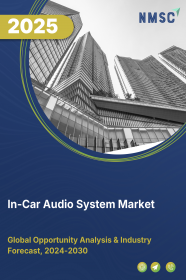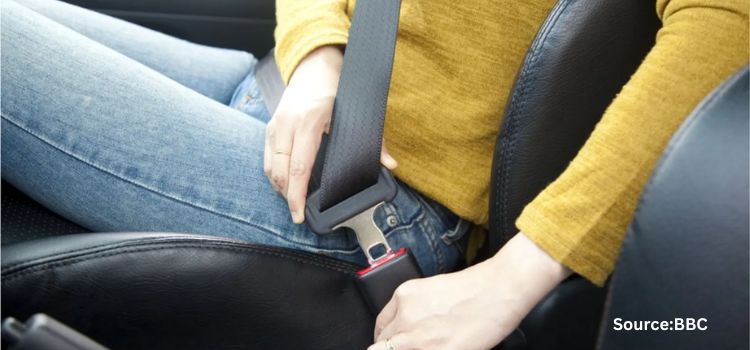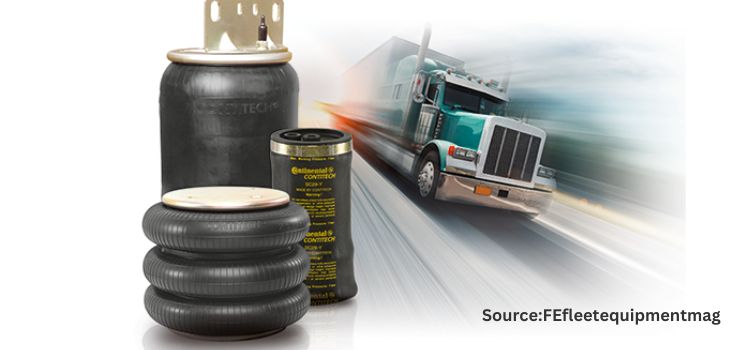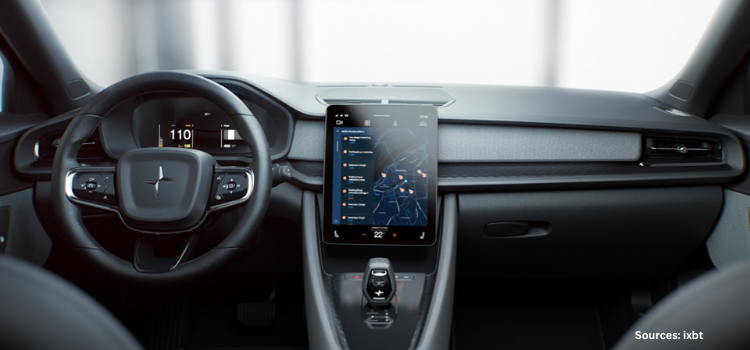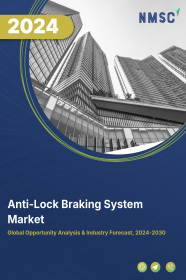
Anti-Lock Braking System Market by Sub-System Type (Sensors, Electric Control Unit, and Hydraulic Unit), by Vehicle Type (Two-wheeler, Passenger Cars, and Commercial Vehicles)-Global Opportunity Analysis and Industry Forecast, 2020 – 2030
Industry: Automotive & Transportation | Publish Date: 31-Dec-2024 | No of Pages: 207 | No. of Tables: 113 | No. of Figures: 83 | Format: PDF | Report Code : AT295
Market Definition:
The global Anti-Lock Braking System Market size valued to USD 40.81 billion in 2019, is predicted to reach USD 110.91 billion by 2030, witnessing a CAGR of 9.5% from 2020-2030.
Anti-lock Braking System (ABS) is a sophisticated and effective braking system used in two-wheelers, passenger cars, commercial vehicles, or other automobiles. Its anti-skid safety system prevents wheel lock under braking, hence maintaining tractive control with road surface. ABS helps improve steering control, decreasing the stopping distances on loose gravel, snow-covered surfaces, dry surfaces as well as slippery surfaces, thereby avoiding vehicle collision.
Market Dynamics and Trends:
The global anti-lock braking system market is on a spur due to escalating number of roadcrashes and the consequent increase in the death rates. Besides, factors such as the increase in the number of vehicles, stringent government policies to ensure the maximum safety features, growing demand from the consumer's side for advanced safety features as well as increasing awareness towards safe driving, are expected to foster the market growth throughout the forecast period.
Furthermore, the advanced safety features offered by ABS such as reduced tier wear, reduced braking distance, automated anti-collision system as well as stable braking characteristics on all kinds of road surfaces are anticipated in supplementing the growth of the global anti-lock braking system market.
However, factors such as high installation and maintenance costs as well as a lack of skilled workforce, is expected to impede the market growth, during the forecast period.
Moreover, the growing demand for passenger cars, increasing installation of ABS in two-wheelers, expansion of the ABS market in developing economies as well as its introduction in electric vehicles and conventional vehicles by the leading manufacturers, tend to pave the way for lucrative opportunities in the global anti-lock braking system market in the future.
Market Segmentations and Scope of the Study:
The global anti-lock braking system market share analysis is based on sub-system, vehicle type and geography.
Based on sub-system type, the market is segmented into Sensors, Electric Control Unit, and Hydraulic Unit. Based on vehicle type, the market is divided into Two-wheeler, Passenger Cars, and Commercial Vehicles. Geographic breakdown and analysis of each of the previously mentioned segments include regions comprising North America, Asia-Pacific, Europe, and RoW.
Geographical Analysis:
North America is expected to dominate the global anti-lock braking system industry, holding the major market share throughout the forecast period. Increased adoption of anti-lock braking systems, technological advancement, presence of well-established infrastructure as well as increased demand for safety features, is expected to propel the growth of the anti-lock braking system market.
Asia-Pacific region specifically the emerging economies are expected to demonstrate a substantial growth in the global anti-lock braking system market with the highest CAGR, throughout the forecast period. This is attributable to stringent government policies to ensure maximum safety features, upsurge in road accidents, increase in disposable income, as well as extensively growing demand for passenger cars.
Competitive Landscape:
The anti-lock braking system industry, which is highly competitive, consists of various market players. Some of the major market players include Autoliv Inc., Advics Co., Ltd., Continental AG, Hitachi Automotive Systems Ltd., Denso Corporation, Nissin Kogyo Co., Ltd., Hyundai Mobis Co., Ltd., WABCO, Robert Bosch GmbH, and ZF TRW among others.
The past endeavors and futuristic advancements, sum up to comprehend the overall anti-lock braking system market growth.
For instance, in October 2019, the well-known market player, WABCO, introduced its intelligent Anti-Lock Braking System (iABS), which proves to be the next-generation ABS for commercial trailers. The iABS optimizes trailer control hence preventing the wheels from locking, skidding, and slipping during emergency situations.
Furthermore, road traffic crashes result in approximately 1.35 million deaths every year; leaving 20-50 million people with non-fatal injuries, according to the data provided by World Health Organization. As per studies, Anti-lock braking system can reduce the risk of road accidents by 20%. Henceforth, from April 2019, the Government of India has mandated the installation of ABS in all new as well as existing cars and buses, in-order to reduce road crashes. This in turn is expected to supplement the growth of the anti-lock braking system market in the future.
KEY BENEFITS:
-
The anti-lock braking system market report provides a quantitative analysis of the current market estimations through the year 2020-2030 that assists in identifying the prevailing market opportunities to capitalize on.
-
The study comprises a deep dive analysis of the anti-lock braking system industry, including current and future trends for depicting the prevalent investment pockets in the market.
-
The report provides detailed information related to key drivers, restraints, opportunities, and their impact on the global market.
-
The report incorporates a competitive analysis of the market players along with their market share in the global market.
-
The study elaborates SWOT analysis and Porters Five Forces model for the anti-lock braking system market.
-
Value chain analysis in the market study provides a clear picture of the stakeholders’ roles.
KEY MARKET SEGMENTS:
By Sub-System Type
-
Sensors
-
Electric Control Unit
-
Hydraulic Unit
By Vehicle Type
-
Two-Wheeler
-
Passenger Cars
-
Commercial Vehicles
By Geography
-
North America
-
U.S.
-
Canada
-
Mexico
-
-
Europe
-
UK
-
Germany
-
France
-
Italy
-
Rest of Europe
-
-
Asia-Pacific
-
China
-
India
-
Japan
-
Australia
-
Rest of Asia-Pacific
-
-
RoW
-
Latin America
-
Middle East
-
Africa
-
REPORT SCOPE AND SEGMENTATION:
|
Parameters |
Details |
|
Analysis Period |
2019–2030 |
|
Base Year Considered |
2020 |
|
Forecast Period |
2020–2030 |
|
Market Size Estimation |
Billion (USD) |
|
Market Segmentation |
By Sub-System Type (Sensors, Electric Control Unit, Hydraulic Unit) By Vehicle Type (Two-Wheeler, Passengers Cars, Commercial Vehicles) |
|
Geographical Segmentation |
North America (U.S., Canada, Mexico) Europe (UK, Germany, Italy, France, Rest of Europe), Asia-Pacific (China, Japan, India, Australia, Rest of APAC), Rest of the World (Latin America, Middle East, Africa) |
|
Companies Profiled |
Autoliv Inc., Advics Co., Ltd., Continental AG, Hitachi Automotive Systems Ltd., Denso Corporation, Nissin Kogyo Co., Ltd., Hyundai Mobis Co., Ltd., WABCO, Robert Bosch GmbH, and ZF TRW. |
KEY PLAYERS:
-
Autoliv Inc.
-
Advics Co., Ltd.
-
Continental AG
-
Hitachi Automotive Systems Ltd.
-
Denso Corporation
-
Nissin Kogyo Co., Ltd.
-
Hyundai Mobis Co., Ltd.
-
WABCO
-
Robert Bosch GmbH
-
ZF TRW

















 Speak to Our Analyst
Speak to Our Analyst



